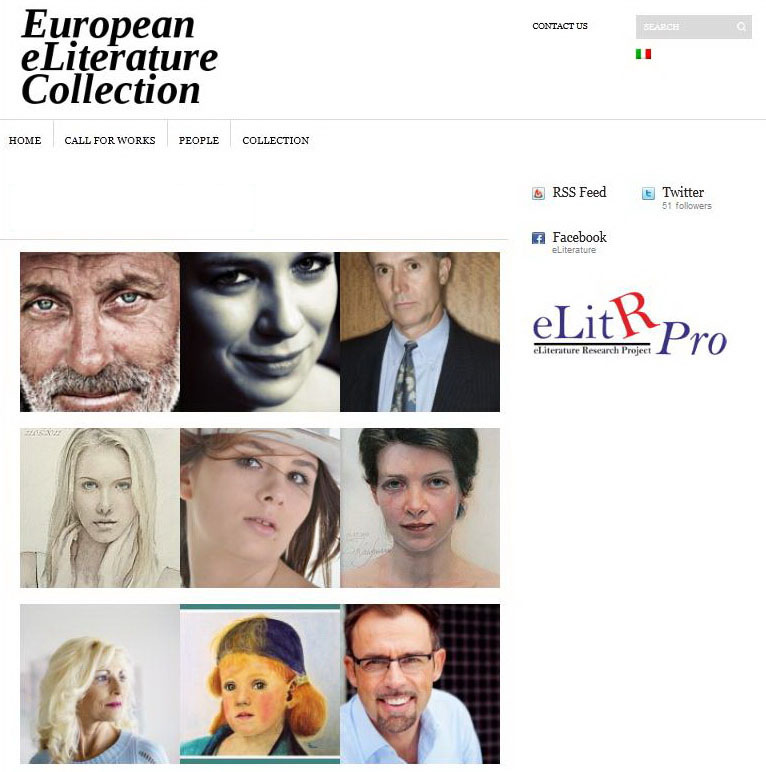Search
The search found 6 results in 0.009 seconds.
Search results
-
European eLiterature Collection
The European eLiterature Collection is a project developed as part of The eLiterature Research Project. The aim of the collection is to provide an essential tool to assist in formalizing e-Literature in Europe.
In this respect, the European eLiterature Collection Board of Editors, evaluates, reviews, and publishes on the web works of Electronic Literature by European authors.

Fabio De Vivo - 22.10.2011 - 12:16
-
Digital Prohibition Piracy and Authorship in New Media Art
The act of creation requires us to remix existing cultural content and yet recent sweeping changes to copyright laws have criminalized the creative act as a violation of corporate rights in a commodified world. Copyright was originally designed to protect publishers, not authors, and has now gained a stranglehold on our ability to transport, read, write, teach and publish digital materials.
Contrasting Western models with issues of piracy as practiced in Asia, Digital Prohibition explores the concept of authorship as a capitalist institution and posits the Marxist idea of the multitude (à la Antonio Negri and Michael Hardt, and Paulo Virno) as a new collaborative model for creation in the digital age. Looking at how digital culture has transformed unitary authorship from its book-bound parameters into a collective and dispersed endeavor, Dr. Guertin examines process-based forms as diverse as blogs, Facebook, Twitter, performance art, immersive environments, smart mobs, hacktivism, tactical media, machinima, generative computer games (like Spore and The Sims) and augmented reality.
(Source: Continuum online catalog)
Eric Dean Rasmussen - 28.03.2012 - 09:48
-
Archiving Workshop
In discussions with many practitioners of E-Literature over the past two years, the subject of
Archiving (a focus at the Brown Conference) continues as a major challenge in the field. The rapid changes that continue to take place as electronic media becomes more mobile and miniaturized have made even recent archiving techniques problematic. The establishment of specific author archives – and the methods for creating these – has also been developing in the last couple of years.In response to requests from several ELO Members, I am proposing a one-day Workshop Session on Archiving. This Workshop will take place on Wednesday, June 20, in the morning and afternoon before Registration and the Opening Reception. Proposed topics include: A. The Overall Issue - Tech changes in E-lit 1990 – 2012 – overall plans for Archiving; B. The Nature of Obsolescence - what software/platforms/works are currently threatened?; C. Technologies of Archiving - Where are we in this process - what kinds of archiving strategies are being used? What are the copyright issues?; D. Existing Archives and the future of Archiving. Do we want to mention the PAD document from ELO?
Eric Dean Rasmussen - 14.06.2012 - 14:35
-
The Save Button Ruined Everything
Jason Scott is a man on a mission — save all the things.
But what does “save” mean in the modern world, in the waterfall of personal and private data, and where do we even begin? Turning on the history-o-matic, Jason provides a backdrop to our attempts to “save”, what has been done, and what we can do. The talk will be fast-paced and loud, like a hard drive at the end of its life.
(Source: dConstruct Archive)
Scott Rettberg - 10.09.2012 - 19:47
-
How has technology changed writing and literature?
Matthew G. Kirschenbaum, a professor of English at the University of Maryland and director of the Maryland Institute for Technology in the Humanities, explored questions of technology, research, content and writing at the intersection of literary and technological history during an ATLAS Speaker Series presentation Oct. 1, 2012.
Drawing from his book, “Track Changes: A Literary History of Word Processing,” Kirschenbaum talked about how word processors have changed the history and culture of authorship and how technology has changed the relationship of writers to their craft.
This event was a collaboration between the ATLAS Institute, CU’s Department of English, The ICJMT (Information, Communication, Journalism, Media and Technology) Initiative, University Libraries ScriptaLab and Friends of the Libraries.
The ATLAS Speaker Series is made possible by a generous donation by Idit Harel Caperton and Anat Harel.
(Source: Atlas Speaker Series, University of Colorado)
Scott Rettberg - 25.10.2012 - 09:41
-
ELD & ELMCIP (Interview with Scott Rettberg & Joseph Tabbi)
Scott Rettberg (ELMCIP elmcip.net/) & Joe Tabbi (ELD directory.eliterature.org/)
discuss how the acceleration of technology has influenced the stability of e-lit and discourse.As directors of archives with extensive historical roots in the history of the ELO, both these individuals contribute formidably to the 'collective memory' of electronic literature. Preservation and re-construction of reader experience are problematic issues; preserving e-lit involves preserving the context and networks of discourse that envelop e-literature in an 'ecology'. Optimal success involves creating the conditions for project 'interoperability': linking conversations and structures that ensure continuity.
Neither Rettberg nor Tabbi, anticipated when they started that they would become become archivists, yet they now keep e-lit data from getting wet and/or disappearing.
(Source: David Jhave Johnston's description)
Scott Rettberg - 12.02.2013 - 08:52

